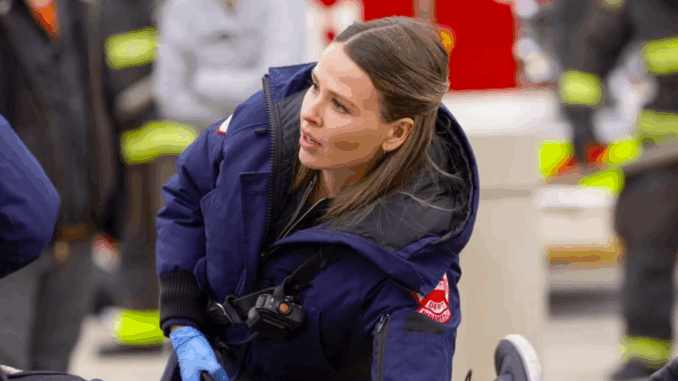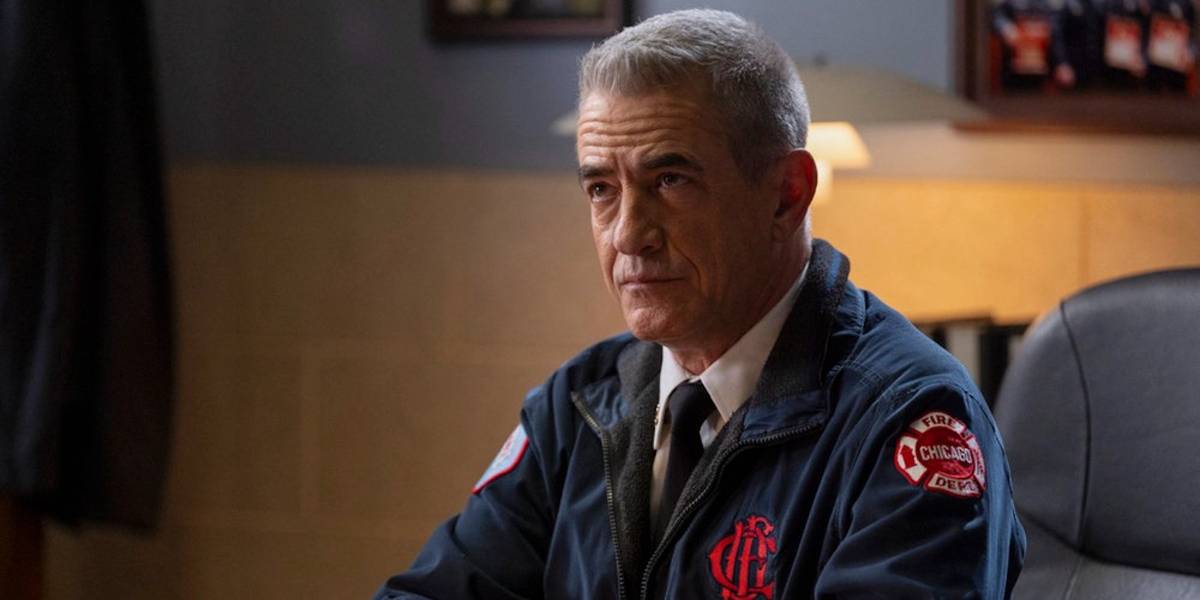
A Changing Firehouse in a Changing TV Landscape
For over a decade, Firehouse 51 has stood as a symbol of unity, bravery, and family in Chicago Fire. Week after week, the firefighters, paramedics, and officers who call 51 home have tackled blazing infernos and personal challenges with equal intensity. But as the series prepares for its 14th season, things may never look—or feel—the same.
NBC’s cost-cutting renewal deal for Chicago Fire has not only shortened the upcoming season but may also shake up the very foundation of Firehouse 51. From shifting character roles to fewer ensemble moments, the 51 that fans know and love might soon face its most significant transformation yet.
A Smaller Cast Presence Means Bigger Shifts in Screen Time
While no official announcements have named which characters may appear less in Season 14, reports suggest that rotating cast schedules will become the new normal. That means fans may not see every core character—like Severide, Kidd, Cruz, or Boden—in every episode.
The implications are big. Firehouse 51 thrives on chemistry, and when any piece of the puzzle is missing, the entire rhythm of the show changes. If key players like Severide or Kidd are absent in alternating episodes, others will need to step up—likely pushing characters like Ritter, Gallo, or even newcomer Lennox into more central roles.
This could be a double-edged sword. On one hand, it’s a chance to deepen underused characters. On the other, it risks disrupting the emotional balance fans have grown attached to.
Boden’s Leadership: A New Phase or a Quiet Exit?
Chief Wallace Boden has long been the stoic heart of Firehouse 51. But with actor Eamonn Walker’s age and the show’s new direction, many are wondering if Boden’s role will evolve—or fade.
If Boden appears in fewer episodes, we may see him delegate more leadership responsibilities to others, possibly Stella Kidd. Her arc in recent seasons has already hinted at command ambitions, and Season 14 could be the year she steps into a more official leadership capacity.
A handoff like this could be narratively satisfying—especially if written as an emotional baton pass from Boden to Kidd—but it would mark the end of an era for longtime fans.
The Future of Stellaride: What Happens If They’re Apart?
Stella Kidd and Kelly Severide have been Chicago Fire’s most compelling couple in recent years. Their relationship has endured trauma, long-distance strain, and professional friction, culminating in a marriage that brought fans to tears.
But what happens to that dynamic when one or both actors appear less frequently?
It’s possible that the writers will need to keep their stories separate for logistical reasons—perhaps sending one of them on extended training, missions, or leave. That kind of physical distance could test their marriage in new ways. Or, alternatively, the show may lean into more off-screen explanations, with one partner “at headquarters” or “on special assignment.”
Either way, the emotional weight of Stellaride will remain. But whether it stays front and center or fades into the background is a question the show must answer carefully.
New Blood, New Energy?

One way the show might compensate for reduced screen time from veteran cast members is by introducing new characters—rookie firefighters, paramedics, or even fresh leadership figures.
While this has worked in the past (e.g., Ritter’s evolution from background to fan favorite), new characters need time, chemistry, and strong writing to earn their place. If the show leans too heavily on new faces without anchoring them in the legacy of Firehouse 51, longtime viewers may feel disconnected.
That said, a carefully chosen new recruit could inject fresh life into the firehouse and open up new dynamics, especially among the younger cast.
The Power of the Truck and the Ambulance
Even with potential absences and changes, one constant remains: the work itself. Firehouse 51’s two backbones—Truck 81 and Ambulance 61—will continue rolling into danger.
But with fewer episodes and smaller action budgets, we may see more grounded, emotionally charged calls rather than large-scale rescue operations. That’s not necessarily a bad thing. Some of the series’ best episodes have focused on intimate rescues that reveal character rather than chaos.
Expect Season 14 to lean into these emotionally resonant emergencies—where what happens after the call matters as much as the fire itself.
Fan Loyalty Will Be Tested
The Chicago Fire fanbase is famously loyal. Many have watched since Season 1 and built deep emotional connections with every character, from Dawson to Otis, Casey to Cruz.
Season 14 will test that loyalty—not because the show is failing creatively, but because external pressures may prevent it from delivering what fans have come to expect. Some may be willing to accept the changes and embrace a new format. Others may walk away if they feel the heart of Firehouse 51 is lost.
That’s why clear communication from the writers and NBC will be crucial. Transparency about which characters are staying, which are leaving, and what kind of stories fans can expect could help manage expectations and preserve goodwill.
A Chance to Reinvent While Honoring the Past
Amid the uncertainty, there’s also opportunity.
Chicago Fire has always been about family—how people from different walks of life come together to protect each other and serve their city. Season 14 could re-center that theme in powerful ways, especially if the cast changes force the characters to reevaluate their roles, loyalties, and priorities.
It’s also a chance for unsung heroes—like Ritter, Gallo, Violet, and Mouch—to take on more narrative weight and show just how strong Firehouse 51’s foundation really is.
Final Thoughts: The Firehouse May Change, But the Heart Beats On
As Chicago Fire steps into a more uncertain chapter, Firehouse 51 faces a test of endurance—not from a blazing inferno, but from shifting budgets, network strategy, and production logistics.
But if there’s one thing this firehouse has always proven, it’s that family finds a way to hold the line.
Season 14 may look different. It may feel different. But if the writing honors the characters, the legacy, and the fans, Chicago Fire can still deliver stories that burn just as brightly—even if the fire is a little smaller.